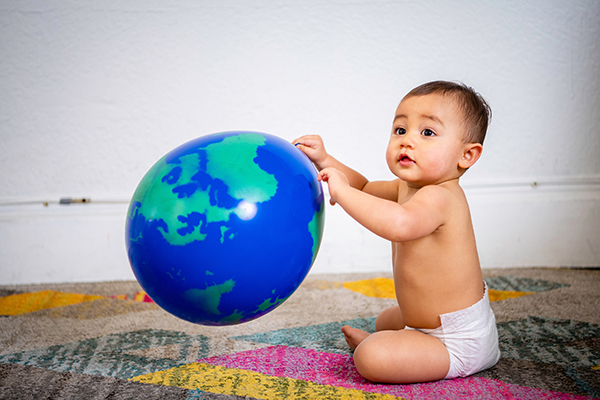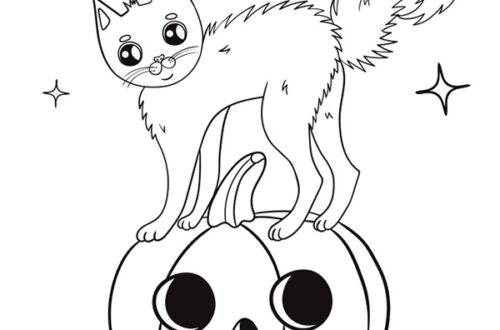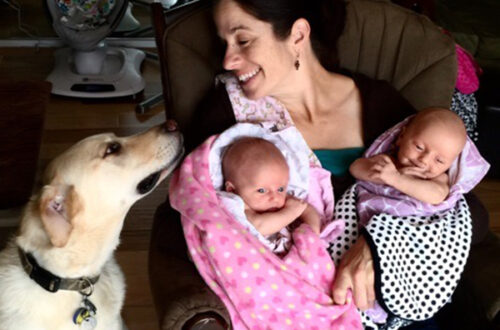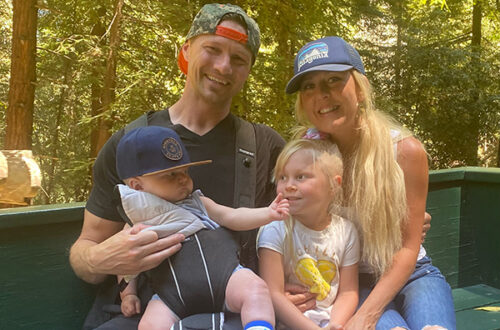
Happy Diapers
4 Eco-Friendly Alternatives to Disposable Diapers
BY Molly Ressler

Choosing the right kind of diaper is an important decision and is a matter of baby’s comfort, your personal preference, time constraints, budget, and for some, environmental impact.
Photo courtesy of REDYPER™ Powered by EarthBaby
It’s a fact that babies go through a lot of diapers. And we’re talking A LOT. From age 0-3, the average baby will go through up to 7,000 diapers. That means we’re throwing an estimated 20 billion disposable diapers into the trash every year in the U.S. Diapers are the third largest contributor to U.S. landfill sites in volume where they take 500+ years to break down. This means that your baby’s diapers will outlive you, your children, and even your great-great-great grandchildren.
So, what’s an eco-conscious parent to do? For Santa Cruz families, there are 4 eco-friendly alternatives to disposables. Here’s what you need to know about each of these approaches so you can enter parenthood with a well-stocked changing table that’s also good for the planet.
Elimination communication: Toilet-training from the get-go
Elimination Communication or EC is a diapering approach that encourages your baby to go pee and poop in the toilet from as early as birth. It’s important to note that you will still need to use some diapers for sleeping, in the car, and other away-from-home situations.
EC requires lots of close observation to learn your baby’s cues (great bonding time!), patience, and an openness to things getting a bit messy. Check out the San Francisco-based Diaper Free Collective for free resources and an online support group.
Cloth diapers: The way grandma did diapers
The world of cloth diapers has come a long way since they were first mass-produced back in 1887. Today, you have so many cloth diaper “systems” to choose from, it can make your head spin. There’s also the question of how to wash them and whether or not they’re actually better for the environment than disposables. The unfortunate truth is that in most households the difference in greenhouse gas emissions between cloth and disposables is insignificant, and in some cases, disposables have an even lower carbon footprint.
To make cloth diapers a truly green option, you will need to upgrade to an energy efficient washer and dryer, use second hand cloth diapers, never wash above 140 degrees F, and line dry whenever possible. For a detailed breakdown of all the cloth diapering systems and step-by-step instructions for washing, check out Cloth Diapers for Beginners.
Plant-based disposables
Plant-based disposables are convenient and good for baby’s sensitive skin. They don’t use petroleum-based products or potentially harmful chemicals like conventional disposables. Parents love that most are hypoallergenic which means they don’t contain any fragrances, dyes or lotions which can irritate sensitive skin. Plant-based diapers are also typically free of phthalates but always look for brands that say “phthalate free.” Some of these diapers even claim to be biodegradable, but this is only true if you use a composting service specifically designed to handle diapers and human waste.
Plant-based disposables with a compostable diaper service
Photo courtesy of REDYPER™ Powered by EarthBaby
If you love the idea of the convenience of disposables but wish your baby’s diapers didn’t have to sit in a landfill for 500+ years, you’re in luck. Here in Santa Cruz, REDYPER Powered by EarthBaby offers weekly diaper delivery, pickup, and composting to families who live within their designated service areas.
Your baby’s diapers and wipes (choose from two plant-based brands, DYPER and Nurture) are turned to dirt in just 14 weeks at a commercial composting facility based in the South Bay. Collectively, thousands of families across the Bay Area are turning 14 tons of diapers into nutrient-rich soil every single week. This soil is then used for landscaping, sod growing, and roadside plantation projects. (It’s important to note that diapers must be composted through a licensed commercial composting facility and cannot be put in your home compost or green bin due to the presence of harmful bacteria in human waste.)
Choosing the right kind of diaper is an important decision and is a matter of baby’s comfort, your personal preference, time constraints, budget, and for some, environmental impact. Whatever approach you choose, know that there are plenty of online resources and local organizations available to help you prepare and find the best choice for your family.
Molly Ressler is a Santa Cruz mama and the marketing director for REDYPER™ Powered by EarthBaby, a Bay Area-based diaper composting service. In her role, she educates parents and caregivers about the environmental and health impacts of conventional disposable diapers. She also heads their Change Champion program, partnering with nonprofits and like-minded businesses to multiply REDYPER’s impact and provide diapers and other resources to families in need. Find out more at earth-baby.com.


You May Also Like

Scaredy Cat
September 29, 2022
Doula Profile Beth Lillienthal
September 29, 2022

